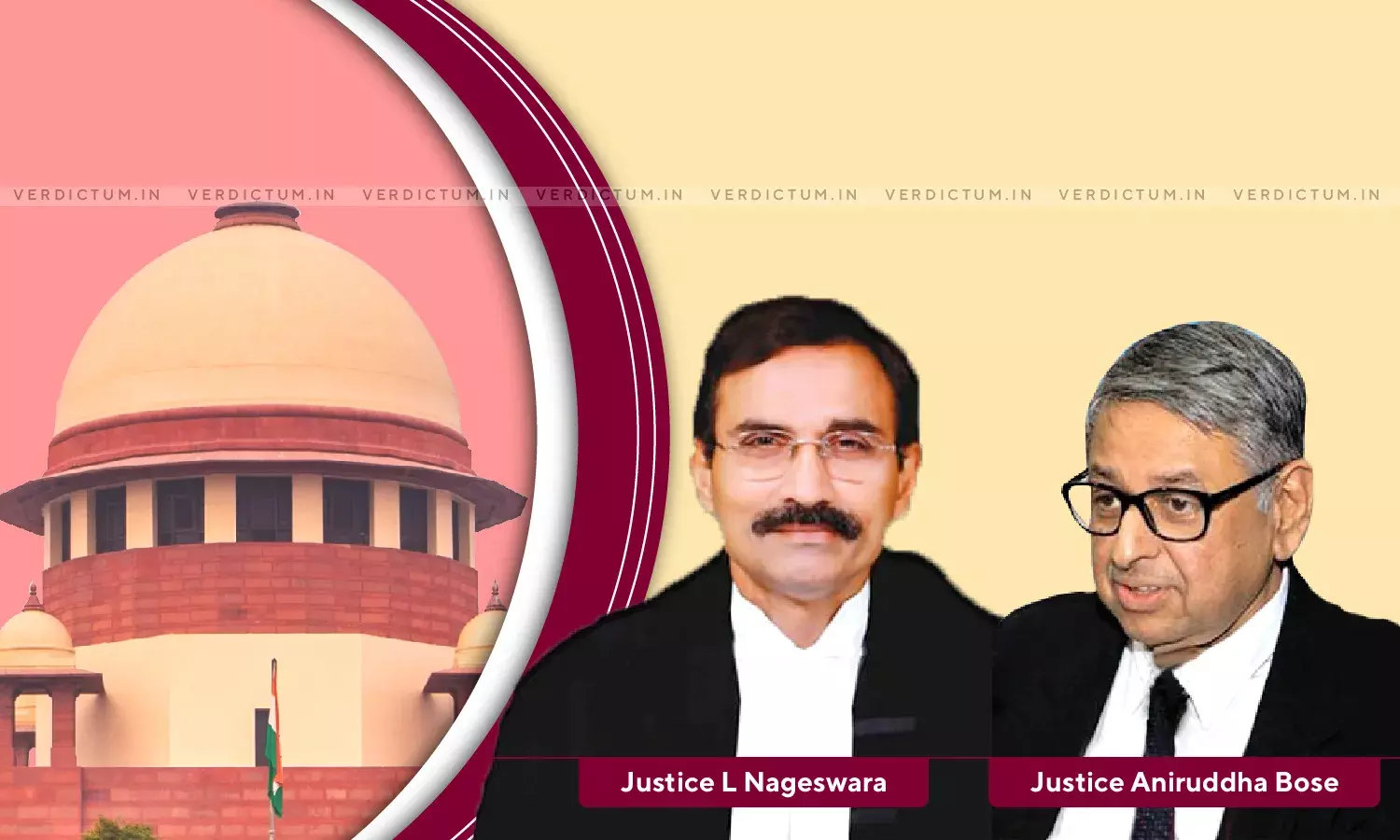Detailed Factual Enquiry Is Impermissible While Hearing Appeal Under Section 100 Of CPC - Supreme Court

A two-judge Bench of Justice L. Nageswara Rao and Justice Aniruddha Bose has held that the High Court erred in holding that the Will was proved in terms of Section 63 of the Indian Succession Act, 1925 and went deep into factual inquiry to prove its genuineness.
The Court held, "It is evident from the judgment under appeal that the formulation of the question of law was on question of fact only. In formulating the question on the basis of which the Appeal was admitted, the High Court proceeded on the basis that the Will was proved in terms of Section 63 of the Indian Succession Act, 1925."
An appeal was preferred by the State of Haryana before the Supreme Court against the judgment of the Punjab and Haryana High Court. The High Court had set aside the finding of the Trial Court and the First Appellate Court concerning the genuinity of a Will of one Kishan Singh by which agricultural land comprising of 52 kanals and 3 marlas in the district of Kurukshetra in Haryana stood bequeathed to one Harnam Singh (deceased).
In this case, on Kishan Singh's death, a dispute arose over the mutation of subject-land as the Harnam Singh-Original Plaintiff claimed the right over it on the basis of a Will executed. Harnam Singh claimed to be a legatee under the said Will, however, he was not related to the deceased by blood.
The Appellant-State of Haryana had contested the genuinity of the Will. At first, the land was mutated in favor of Harnam Singh (deceased) but eventually, by applying the Doctrine of Escheat the land was mutated in favor of the State of Haryana-Appellant.
A suit was filed by Harnam Singh before the Trial Court. However, the Court dismissed the suit as there were inconsistencies in the testimony of the witnesses. The Court had held that no Will was executed by the deceased Kishan Singh in favor of the Plaintiff. The First Appellate Court affirmed the judgment of the Trial Court.
The issue which was formulated by the High Court on appeal was –
"Whether the will alleged to have been executed by Kishan Singh is genuine or it could be disbelieved by both the Courts below, which has been proved as per the provisions of section 63 of the Indian Succession Act."
The High Court had held that Will was proved in terms of Section 63 of the Indian Succession Act and while coming to this finding the High Court went into deep inquiry.
The Apex Court noted, "The person claiming to be scribe of the Will as well as the two attesting witnesses deposed to support the case of the original plaintiff, but both the Trial Court and the First Appellate Court disbelieved their testimony. The thumb impression of Kishan Singh was not matched. There was contradiction in the evidences of attesting witnesses as regards the place of execution."
"The requirement of Section 63 of the Indian Succession Act, 1925 cannot be said to have been fulfilled by mechanical compliance of the stipulations therein. Evidence of 8 meeting the requirement of the said provision must be reliable. The fact-finding Courts did not find such evidence to be reliable," the Court observed.
The Bench further opined that the High Court erred in formulating the question of law was on a question of fact only which was on the basis that the Will was proved in terms of Section 63 of Indian Succession Act.
"The evidences of the witnesses were disbelieved as they failed to inspire the confidence of fact-finding Courts. The High Court, however, went into a detailed factual inquiry to come to its finding. We are of the opinion that an enquiry of such nature was impermissible while hearing an appeal under Section 100 of the Code of Civil Procedure, 1908," the Court held.
Regarding the legal heirs contesting the appeal, the Court held that the issue could not be resolved in the present proceedings and had to be adjudicated afresh.
Accordingly, the Court allowed the appeal and set aside the impugned judgment of the High Court, and restored the judgment of the First Appellate Court.
Click here to read/download the Judgment

